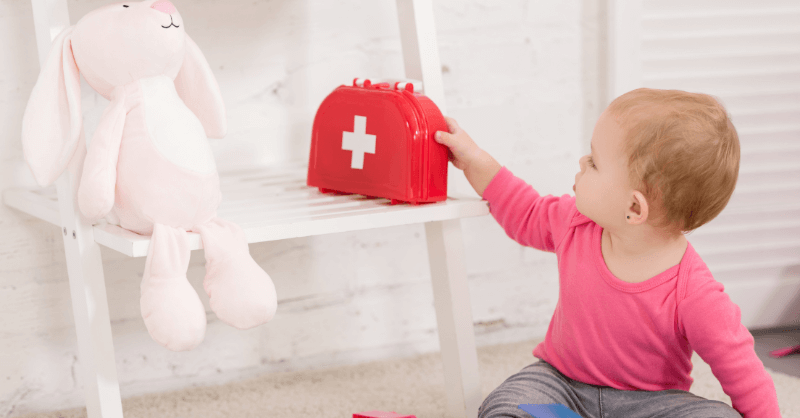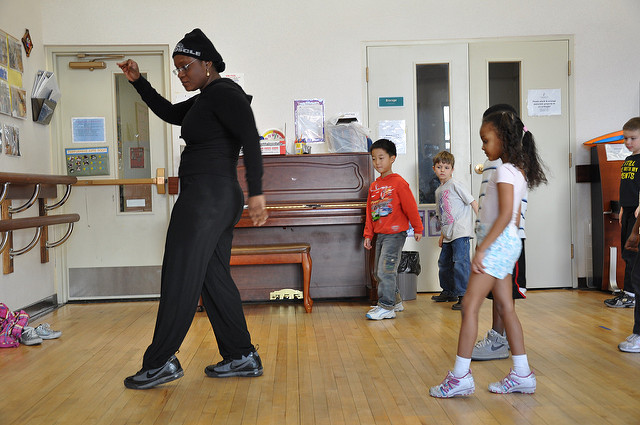Every second counts when a child’s health or safety is at risk. As someone working in childcare or education, you’re also a crucial line of defence in emergencies. Knowing how to respond swiftly and effectively to accidents or medical issues can make all the difference.
A paediatric first aid course equips you with the confidence and skills to handle these critical moments. From treating minor injuries to managing life-threatening situations, this training ensures you’re prepared for the unexpected. It’s not just a qualification; it’s a vital tool for safeguarding the children in your care.
Importance Of Paediatric First Aid Training
Paediatric first aid training equips you with essential skills to handle emergencies involving children. Whether it’s a minor scrape or a critical condition, your ability to act promptly can save a life. These moments in childcare or education settings often demand clear thinking, precise actions, and a confidence that only proper training can develop.
Children are unpredictable, often exploring without understanding risks. You might face choking incidents, severe allergic reactions, or unexpected illnesses. Would you feel prepared to manage such situations effectively? Paediatric first aid training ensures you’re ready to intervene, reducing risks and providing necessary care until medical professionals take over.
Your training doesn’t just teach physical techniques like CPR or wound management. It builds awareness about identifying warning signs that might otherwise go unnoticed, such as breathing difficulties or hidden injuries. Recognising a problem early could prevent it from escalating. You should also gain insight into calming a distressed child, offering not just physical aid but emotional reassurance too.
Working with children means shouldering responsibilities that extend beyond basic care. Imagine being in a classroom, playground, or nursery, where a single mishap can escalate if ignored. Knowing where you stand with your skills ensures you’re not second-guessing yourself when time is critical.
Don’t overlook the confidence that comes with readiness. When emergencies arise, your quick response reflects not only your competence but your commitment to ensuring child safety. Training also aligns with regulatory expectations, keeping both you and your workplace compliant with national safety standards.
Course Overview
Every childcare and education worker knows the value of being equipped for emergencies. A paediatric first aid course ensures you’re ready to respond decisively and competently, no matter the situation.
Key Topics Covered
You’ll delve into life-saving techniques like CPR for infants and young children, focusing on age-specific approaches. You might learn how to assess unresponsive children or deal with choking, burns, fractures, or anaphylaxis. Handling bleeding and understanding asthma or epilepsy emergencies should also form part of your learning. Your skills will likely expand to include identifying less-obvious warning signs and offering psychological comfort during crises.
Duration And Format
Typically, this course can take between one and two days, delivered in interactive workshops and classroom-based sessions. Practical modules allow you to engage directly with techniques, while theoretical learning happens through multimedia presentations. Some courses may combine online and in-person training to offer flexibility. Whether attending as part of a group or individually, the layout ensures you grasp both foundational and advanced first aid concepts tailored to childcare scenarios.
Benefits For Childcare & Education Workers
Paediatric first aid training offers essential advantages for professionals in childcare and education settings. It goes beyond meeting requirements, equipping you with the skills to handle emergencies and ensuring children’s well-being.
Ensuring Child Safety
Your role places you as a guardian in critical moments. Knowing how to spot subtle changes in a child’s condition or respond to sudden accidents can make the difference between recovery and worsening outcomes. When a child struggles to breathe or sustains a serious injury, your ability to act quickly determines the next steps. Training prepares you to manage choking, bleeding, or severe reactions, helping provide immediate care before advanced medical help arrives. This readiness fosters an environment where children feel secure, and parents trust fully in your care.
Enhancing Professional Skills
Paediatric first aid enhances your abilities, cementing your standing as a skilled childcare worker. Developing precision in CPR for infants or toddlers sharpens your quick-decision-making skills, vital in chaotic situations. Recognising symptoms that others might miss or communicating calmly during emergencies conveys professionalism and keeps team efforts seamless. Such skills not only elevate your day-to-day practice but also enhance your career opportunities, showing your dedication to safeguarding children under your watch.
Choosing The Right Course
Selecting the most suitable paediatric first aid course ensures you’re equipped to handle emergencies confidently. Focus on specific elements like official recognition and the trainer’s background to make an informed choice.
Certification And Accreditation
You might want to check if the course aligns with regulations like the Early Years Foundation Stage (EYFS) requirements. Accreditation by recognised bodies, such as Qualsafe Awards or Ofqual, guarantees you’re learning from a trusted source. Courses often provide certificates valid for three years, confirming your qualification is up to date. Be sure the assessment criteria meet current first aid standards. A course offering both theoretical knowledge and hands-on practice ensures your skills will translate into real-world situations effectively.
Trainer Expertise
An experienced trainer bridges the gap between theory and practical application. Look for instructors with medical backgrounds like paramedics or certified first aid professionals. Trainers with childcare experience bring valuable insights into age-appropriate techniques for paediatric care. Their ability to explain complex situations simply can shape your confidence. It’s worth reviewing feedback from past participants to gauge teaching quality. A skilled trainer should encourage engagement, provide clear demonstrations, and prepare you for scenarios ranging from minor cuts to urgent emergencies.
Real-Life Applications Of Training
Paediatric first aid training provides practical skills that directly apply to real-world childcare and educational settings. It ensures you’re prepared for situations requiring swift, informed decisions.
Handling Emergencies
Your ability to act swiftly during emergencies can save lives. When a child is unconscious or choking, you might rely on CPR techniques or back blows, skills gained through training. Courses should help you master assessing danger quickly to ensure everyone’s safety. Would you recognise an anaphylactic reaction before it escalates? Training equips you to use tools like EpiPens effectively, enabling immediate responses. Handling injuries such as fractures or burns becomes second nature. By staying composed, you’re a lifeline in moments of distress that require urgent care.
Preventing Common Hazards
You can reduce risks by identifying everyday dangers often overlooked. Training addresses hazard prevention in various settings, whether at playgrounds or classrooms. Are you spotting slippery floors or loose wires? These details matter. Knowledge of child behaviour might help you predict accidents, like falls from high surfaces or ingestion of small objects. You’ll learn to manage both the environment and supervision dynamics. Prevention isn’t just reactive but proactive, ensuring safety protocols are robust.
Final Thoughts
Paediatric first aid training equips you with the knowledge and practical skills to handle emergencies effectively, ensuring the safety and well-being of children in your care. It empowers you to act swiftly and confidently in critical situations, demonstrating your professionalism and dedication to safeguarding children.
By investing in accredited training, you not only enhance your abilities but also create a secure environment that fosters trust among parents and colleagues. This commitment to safety and preparedness reflects your role as a responsible childcare or education professional, ready to make a meaningful difference when it matters most.








